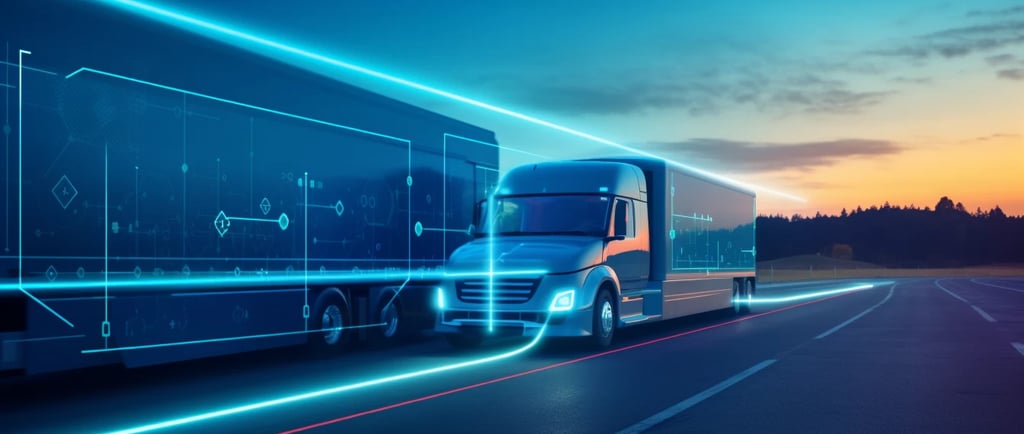The Future of Trucking: How AI Will Transform the Industry
1/28/20252 min read


Introduction to AI in Trucking
The trucking industry plays a pivotal role in the global economy, responsible for transporting goods over vast distances. However, with the rise of artificial intelligence (AI), the dynamics of this industry are set to change dramatically. By integrating AI technologies, trucking companies can enhance efficiency, reduce costs, and improve safety. In this blog post, we will explore how AI is poised to impact the trucking industry in the future.
Improved Logistics and Route Optimization
One of the most significant advantages of employing AI in trucking is enhanced logistics and route optimization. Traditional logistics methods often rely on manual data analysis to determine the most efficient routes for deliveries. In contrast, AI can analyze vast amounts of data in real-time, factoring in traffic patterns, weather conditions, and road closures. This capability allows trucking companies to optimize their routes, resulting in reduced fuel consumption and timely deliveries. As a result, businesses can save money while improving customer satisfaction.
Enhanced Safety Measures
Safety is a primary concern in the trucking industry, with long hours on the road contributing to driver fatigue and accidents. Incorporating AI technologies can help mitigate these risks significantly. For instance, AI-powered systems can monitor driver behavior, identifying unsafe practices such as distracted driving or drowsiness. Additionally, autonomous vehicles, a product of advanced AI research, promise to revolutionize safety by minimizing human error. By employing AI-driven solutions, trucking companies can create safer working environments for their drivers while reducing the likelihood of accidents on the road.
The Future of Workforce Dynamics
While the integration of AI in the trucking industry presents many advantages, it also raises questions about the future workforce dynamics. The introduction of autonomous trucks may lead to concerns about job displacement for drivers. However, rather than viewing AI augmentation as a threat, it should be seen as an opportunity to evolve job roles. As AI takes over repetitive and mundane tasks, human workers can shift their focus toward more strategic roles that require critical thinking and problem-solving skills. Additionally, the demand for skilled technicians to maintain and operate advanced AI systems will increase, creating new employment opportunities within the industry.
The trucking industry must embrace these changes to cultivate a more efficient, safe, and reliable transport system.
Support
Ask questions and share truck repair tips.
Connect
© 2025. All rights reserved.
